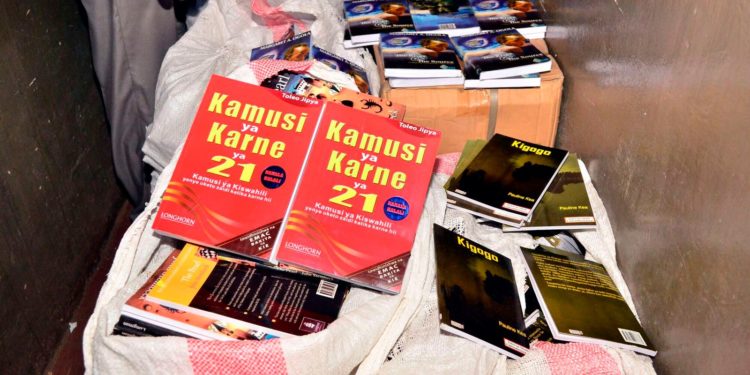On Wednesday, January 8, Kenya Publishers Association (KPA) Chairman James Odhiambo led a series of raids in downtown Nairobi, targeting sellers distributing pirated textbooks. The operation, aimed at tackling the growing issue of counterfeit educational materials, forms part of a broader initiative to protect legitimate publishers and consumers in Kenya.
During the raid, Odhiambo emphasized the importance of eliminating pirated textbooks from the market. “We hope that by the end of this ongoing exercise, we will have significantly reduced, if not eliminated, the circulation of pirated books in Kenya,” Odhiambo stated. He noted that pirated textbooks are often sold at the same price as authentic ones, misleading consumers into purchasing counterfeit versions.
The issue of counterfeit educational materials has raised concerns across the education sector, prompting responses from industry leaders. East African Educational Publishers (EAEP) CEO Kiarie Kamau strongly condemned those involved in the distribution of fake textbooks. “These fake books often contain numerous errors, misplaced pages, and other inaccuracies,” Kamau explained. He stressed the negative impact these books have on students and teachers, emphasizing that they compromise the quality of education.
In an effort to combat the problem, the Kenya Copyright Board (KECOBO) has provided guidelines for consumers to identify authentic textbooks. Genuine textbooks approved by the Kenya Institute of Curriculum Development (KICD) feature security tags, including hidden 16-digit PINs. Consumers can verify authenticity by scratching off the panel on the back of the book to reveal the unique PIN and sending it via SMS to the toll-free number 22776 for instant confirmation.
The public is also being educated on key signs of counterfeit books. These include poor-quality paper, low binding quality, unclear print, page misalignment, and a lack of special finishes like embossed logos or foil stamps. Additionally, unusually low prices could indicate a pirated copy.














